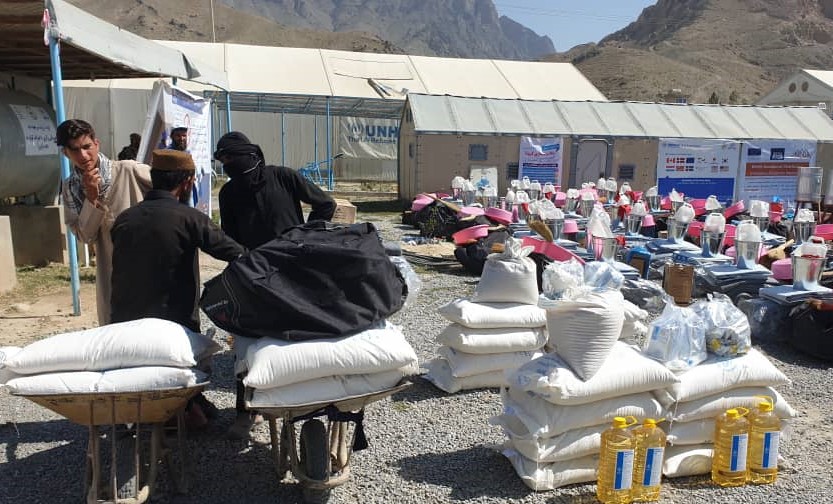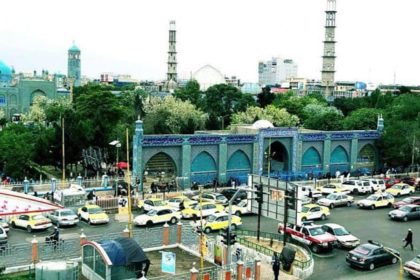RASC News Agency: In today’s Afghanistan, the act of humanitarian assistance has been transformed from a purely benevolent mission into a perilous political battlefield. Aid work once grounded in the principles of neutrality and compassion has now become entangled in a web of intimidation, ideological surveillance, and systemic obstruction. At the heart of this escalating crisis stands the Taliban, who have shifted from passive observers to active saboteurs of humanitarian access. According to a newly released report by the United Nations Office for the Coordination of Humanitarian Affairs (OCHA), the operational environment for humanitarian actors in Afghanistan has deteriorated alarmingly. The report reveals that incidents involving violence or interference by Taliban authorities in aid delivery rose by 13 percent in June 2025 compared to the previous month, and by a staggering 35 percent year-on-year.
Perhaps most disturbing is the Taliban’s direct use of force. The report confirms at least three violent incidents in June alone targeting humanitarian personnel, including the arrest of two female aid workers during a training workshop an act that signals the regime’s aggressive shift from policy-based restrictions to overt persecution. OCHA states that in the first half of 2025, at least 100 humanitarian staff members, including 31 women, have been arbitrarily detained. Most of these arrests were reportedly carried out by the Taliban’s notorious “Ministry for the Promotion of Virtue and the Prevention of Vice” a unit long accused of harassing women and enforcing extremist interpretations of religious codes. Those detained were subjected to coercive interrogations, intimidation tactics, and, in many cases, traumatizing threats. The psychological toll, especially on female staff, has been profound and enduring.
In addition to arbitrary detentions, OCHA documented 13 gender-based incidents, in which female aid workers were either directly targeted or deliberately excluded from participating in relief programs. These restrictions severely undermine not only the inclusivity of humanitarian responses but also their effectiveness in reaching women and girls in need a demographic already systematically silenced under Taliban rule. The Taliban’s obstruction has also taken logistical forms. The report cites seven incidents where humanitarian convoys were either delayed or outright denied passage at Taliban checkpoints. These bureaucratic bottlenecks frequently result in the cancellation of aid missions, particularly to remote and disaster-stricken areas where help is most urgently needed.
Beyond field-level interference, the Taliban’s interventions extend into the administrative core of aid work. OCHA highlights the regime’s systematic demands for control over staff recruitment processes, forced disclosure of sensitive staff data, imposition of unauthorized taxation on humanitarian goods, enforcement of mandatory dress codes, and restrictions on female beneficiaries. Such measures not only violate international humanitarian principles but also expose both aid agencies and recipients to ideological policing and surveillance. According to OCHA’s data, the Taliban are responsible for 87 percent of all reported barriers to humanitarian access in Afghanistan a damning indictment of a regime that continues to claim legitimacy while actively sabotaging life-saving assistance for its own population.
These developments unfold amid a convergence of overlapping crises: Afghanistan is grappling with a collapsed economy, acute food insecurity, intensifying climate shocks, and widespread displacement. Yet instead of facilitating relief efforts, the Taliban have chosen to politicize aid, manipulate its distribution, and impose medieval restrictions that paralyze international assistance. To compound the crisis, extreme weather particularly heavy rainfall and flooding has further hindered mobility and access for aid agencies. Together with Taliban-imposed restrictions, environmental hardships are pushing Afghanistan’s already fragile humanitarian network toward the brink of collapse. What is unfolding in Afghanistan is not a failure of international will or capacity. It is a man-made blockade engineered by a regime that seeks to control aid as a tool of power, rather than a vehicle of relief. And in the process, it is the most vulnerable women, children, the displaced, and the impoverished who are paying the price.






